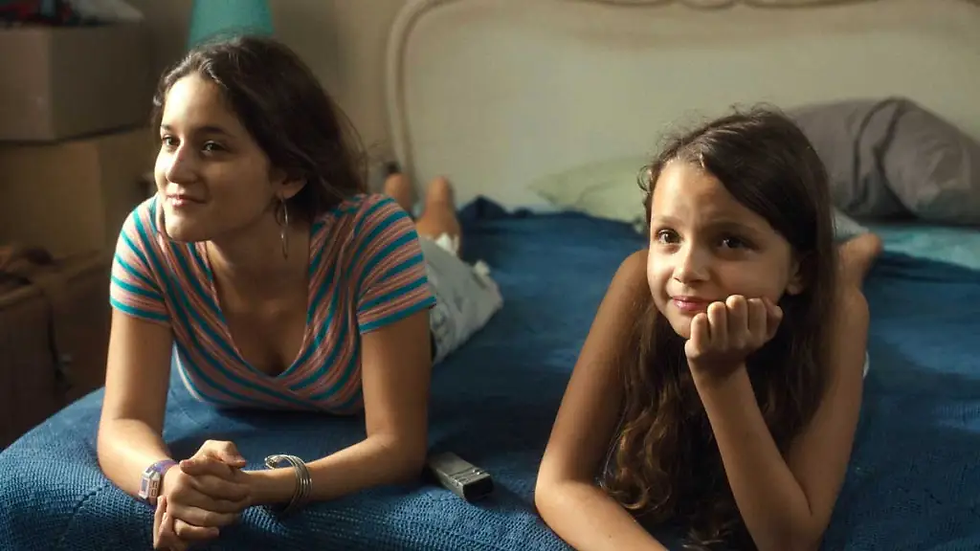Featuring a Feature: Girls State Review
- Brandon MacMurray
- Mar 27, 2024
- 3 min read
In January 2020, Boys State, directed by Jesse Moss and Amanda McBaine, premiered at the Sundance Film Festival and became a festival hit, winning the U.S. Documentary Grand Jury Prize and being sold to Apple TV+, where it had a successful release leading to being shortlisted at the 93rd Academy Awards list for the best documentary feature. Four years later and back at the Sundance Film Festival, Girls State premiered in the premieres section and is headed to premiere on Apple TV+ on April 4th, 2024.
Following a similar structure, the film follows a group of girls that spent an immersive week in the Missouri Girls State program, where they have to form alliances and vote for positions of Governor (the top position), Attorney General, Lieutenant General, and Supreme Court, debating social topics and promoting critical thinking among more than five hundred girls present in the camp. Being presented with the program's general structure, we then meet the subjects, who are from a diverse range of cities across Missouri, with a wide spectrum of political and social views.
The viewer is presented with multiple girls vying for each position. Emily is a conservative but open-minded. She dreams of running for president in 2040 and is looking forward to being elected to Governor in Girls State. One of her opponents, Faith, is on the more liberal side of the political spectrum. She is persuasive and well-spoken as she also aims for the Governor's spot. The last major candidate for governor is Ceclia, a St.Louis native who is both passionate and vivacious. We also meet Nisha, who dreams of being in the program’s supreme court to discuss cases and make decisions based on her socially progressive politics. Tochi is of Nigerian descent and hopes to become the Girl’s State Attorney General.
After being presented with the subjects, the film follows their day-to-day lives while in camp as the candidates canvas, meeting different people. Cultural differences are shown, represented in one of Tochi's campaigns, when she is asked to say something in Igbo, a Nigerian dialect, but refuses because it is a weird thing to ask. She however states and understands that those girls are from rural cities and may never see a black person before. A lot of Girls State also centres around their opinions on abortion with the relevant breaking news of a leaked document that the Supreme Court would try to overrule the Roe v. Wade law, which would be true six days after the end of the program. In fact, for most of those girls, the camp is the first opportunity to debate and discuss politics openly, as most of them are not encouraged or taught to do it daily.
Even though it is similar in form and approach to the Boys State, the directing chooses to follow a different path. Rather than focusing on the competition, which is mainly the focus in Boys State, it chooses to show the participant’s thoughts and contrasts between Boys State and Girls State with the two being held on the same campus for the first time. Reality shocks the camp once they find out the different treatment between those camps finding out that Boys State program has three times the funds, six hundred thousand dollars for the boys versus two hundred thousand dollars for the girls. Even in the debates, the guys had Missouri’s political figures appearing and discussing the Roe v. Wade overturning, when the girls, who are the ones affected by the overturn, were encouraged to empower each other first rather than debating politics, which on paper is what the whole camp is about.
The film truly thrives in choosing its leads, Emily has an arc that is interesting to follow morphing from a conservative leader to an investigative reporter, writing on the inequalities between programs. Tochi and Nisha show how important is not only to invest in female politicians but also in judges and law-makers that will care for the interests of woman rights. The whole observational and interview form is very dependent on empathetic figures and the directors get it right with the girls chosen here.
Girls State has the tough job of being the other side of a successful documentary and the directors successfully do so by choosing a strong group of subjects and reversing the structure that worked in the first film by focusing more on the people rather than the voting. It is a film that provides diverse reflections while also giving a bit of hope for the future generation.
Review by: Pedro Lima






Comments